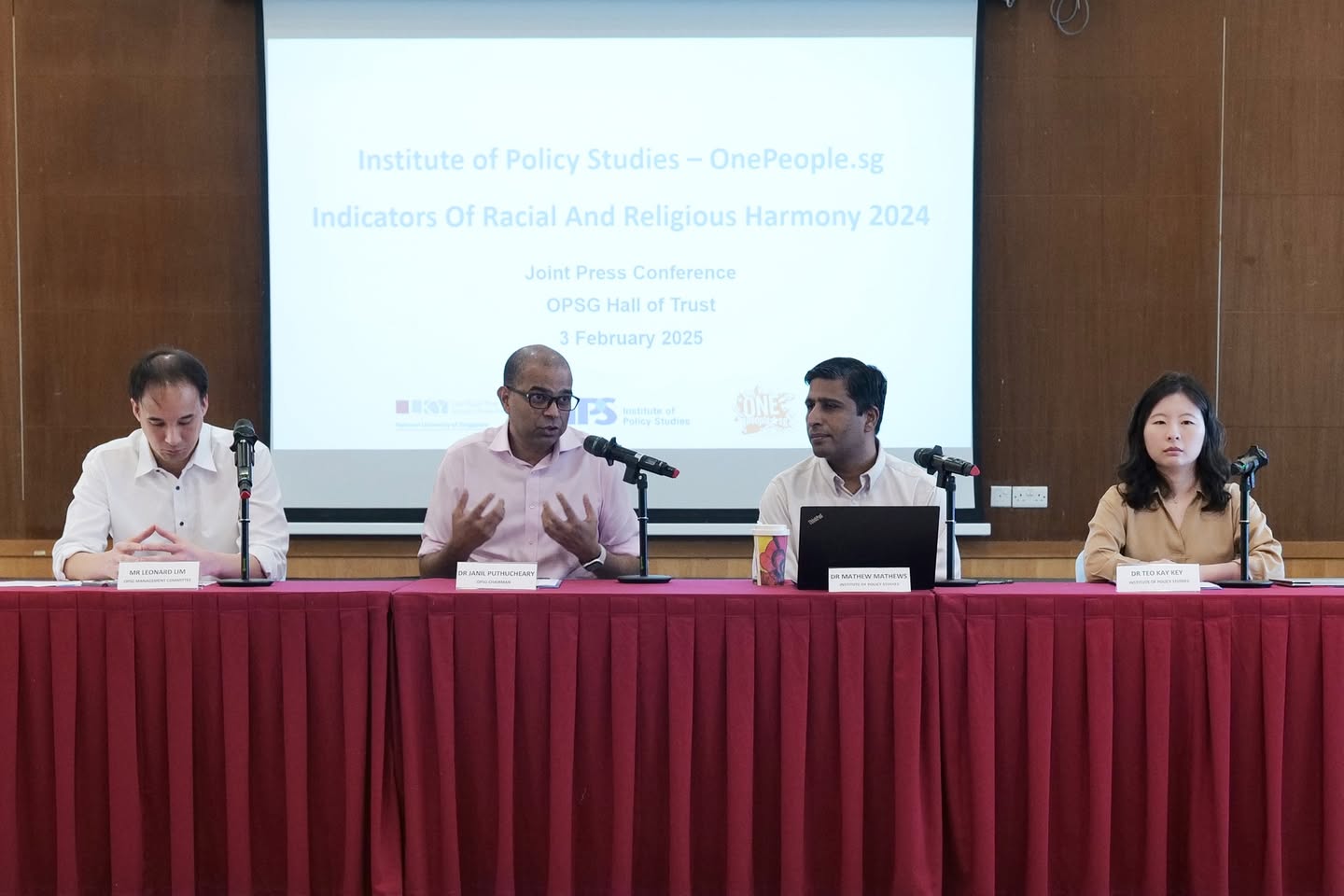A recent study conducted by the Institute of Policy Studies (IPS) and OnePeople.sg has highlighted both progress and persistent challenges in racial and religious harmony in Singapore.
While there has been a notable decline in distrust among different ethnic and religious groups, deep-rooted stereotypes continue to exist.
The Indicators of Racial and Religious Harmony report, based on data collected over the past five years, found that the proportion of Singaporeans who do not fully trust individuals of different faiths or ethnicities has dropped from 42.4% in 2013 to 27.2% last year.
Despite this improvement, the study also reported an increase in racial and religious stereotyping, with its prevalence rising from 35.2% in 2018 to 43.5% in the latest findings.
According to the report, one key factor influencing these trends is the aftermath of the COVID-19 pandemic.
While the shared experience of combating the virus strengthened social cohesion in some aspects, the restrictions on physical interaction contributed to a rise in suspicion toward those perceived as “others.”
The study notes, “These indicators allow us to compare the change in attitudes and perceptions over time, providing a clearer view of Singapore’s progress in maintaining harmony and inclusiveness.”
A major point of concern is the growing emphasis on elements of “diversity,” such as differences in dress, behavior, or age, which has contributed to stronger perceptions of distinctiveness among various groups.
However, OnePeople.sg President Janil Puthucheary remarked that acknowledging such perceptions is not necessarily negative, saying, “It is important to recognize this perception in ourselves so that it is possible to overcome it and arrive at appropriate behavior on a cultural and social level.”
On a more positive note, the study found that relatively few Singaporeans perceive ethnic or religious identity as a barrier in the workplace.
However, significant resistance remains in the realm of personal relationships, particularly concerning interfaith and interracial marriages.
Singapore, a nation of nearly six million people, is home to a Chinese majority (75%) alongside significant Malay, Indian, and Eurasian minorities, as well as 1.5 million immigrants of diverse backgrounds.
Authorities have long played an active role in promoting social harmony, and the report calls for continued engagement from government institutions to uphold the country’s multi-ethnic and multi-religious stability.







